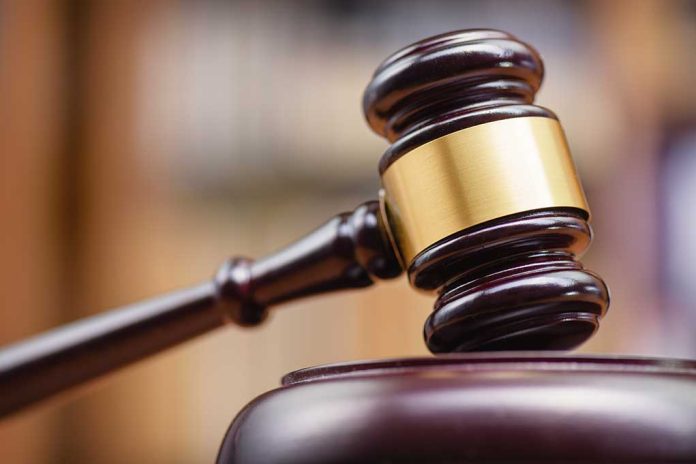
A federal judge has temporarily blocked President Trump’s executive order to end birthright citizenship, calling it “blatantly unconstitutional” and sparking a legal battle that could reach the Supreme Court.
Key Takeaways
- Federal Judge John C. Coughenour issued a 14-day restraining order against Trump’s executive order on birthright citizenship.
- The order aimed to deny citizenship to children born in the U.S. to undocumented immigrants and certain noncitizen parents.
- 22 states and various groups filed lawsuits challenging the order, citing violations of the 14th Amendment.
- President Trump announced plans to appeal the decision.
- The case could potentially reach the Supreme Court, setting up a landmark decision on citizenship rights.
Judge Halts Controversial Executive Order
In a significant legal development, Federal Judge John C. Coughenour has temporarily blocked President Donald Trump’s executive order that sought to end automatic citizenship for babies born on American soil to certain noncitizen parents. The judge’s decision, which imposes a 14-day restraining order on the implementation of the executive order, has ignited a fierce debate on the constitutional foundations of birthright citizenship.
The executive order, signed by President Trump on Inauguration Day, was set to take effect on February 19 and could potentially affect hundreds of thousands of individuals. It aimed to deny citizenship to children born in the United States to undocumented immigrants and certain noncitizen parents, challenging the long-standing interpretation of the 14th Amendment.
Constitutional Challenges and State Opposition
The order faced immediate legal challenges from multiple fronts. A coalition of 22 states, led by Washington, Arizona, Illinois, and Oregon, filed lawsuits against the order, arguing that it violates the Citizenship Clause of the 14th Amendment. These legal actions were joined by activist groups and expectant mothers, highlighting the wide-ranging impact of the proposed policy change.
“This is a blatantly unconstitutional order” – John C. Coughenour
Judge Coughenour’s strong words underscored the judicial branch’s skepticism towards the executive order’s legal standing. The judge further expressed his disbelief, stating, “Frankly, I have difficulty understanding how a member of the bar would state unequivocally that this is a constitutional order. It just boggles my mind.”
The legal argument behind this is pretty persuasive. The precedent extending birthright citizenship involved parents who intended to permanently remain in the U.S. and had renounced all loyalty to foreign sovereigns.
That’s not the case with an illegal alien or alien here on a… https://t.co/9gnA6h20Vy
— John Carney (@carney) January 21, 2025
Trump Administration’s Response and Legal Battle Ahead
In response to the judge’s decision, President Trump announced his intention to appeal. “Obviously we’ll appeal it,” the President stated, signaling the administration’s commitment to pursuing the policy change through higher courts. This sets the stage for a protracted legal battle that could potentially reach the Supreme Court, potentially leading to a landmark decision on the interpretation of birthright citizenship.
The Trump administration argues that the states lack grounds for the lawsuit and that no damage has occurred yet. However, opponents of the order, including Connecticut Attorney General William Tong, strongly disagree. Tong, who has personal connections to birthright citizenship, stated, “There is no legitimate legal debate on this question. But the fact that Trump is dead wrong will not prevent him from inflicting serious harm right now on American families like my own.”
Historical Context and Future Implications
The United States is one of about 30 countries, primarily in the Americas, that apply birthright citizenship. This principle has been a cornerstone of American citizenship law since the ratification of the 14th Amendment in 1868. A key Supreme Court case in 1898 affirmed birthright citizenship for Wong Kim Ark, born to Chinese immigrants in the U.S., although some argue that this case applies only to children of legal immigrants.
As the legal battle unfolds, the case highlights the ongoing debate over immigration policy and constitutional interpretation in the United States. The outcome of this legal challenge could have far-reaching implications for future generations of Americans and the very definition of citizenship in our nation.
Sources:
- A Federal Judge Temporarily Blocks Trump’s Executive Order Ending Birthright Citizenship | Newsmax.com
- Judge Blocks Trump’s Executive Order to End Birthright Citizenship – The New York Times
- Judge temporarily blocks Trump’s executive order redefining birthright citizenship | AP News
- Federal Judge Halts Trump’s Birthright Citizenship Order – Ogletree



